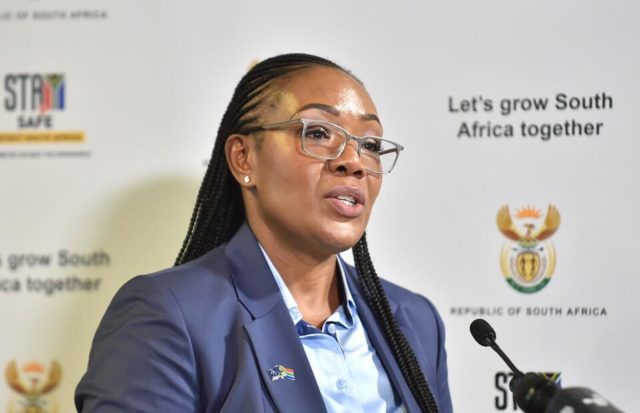Eleven municipalities in the Northern Cape reported ’significant doubt’ over whether they would be able to continue to operate, where they were also unable to pay service providers such as Eskom and the water board.
ELEVEN municipalities in the Northern Cape reported “significant doubt” over whether they would be able to continue to operate, where they were also unable to pay service providers such as Eskom and the water board.
The list of struggling municipalities in the auditor-general’s report on local government for 2020/21 includes Dikgatlong, Magareng, Gamagara, Ga-Segonyana, Kamiesberg, Khâi-Ma, Thembelihle, Ubuntu, Emthanjeni, Richtersveld and Siyathemba in the Northern Cape.
Auditor-General (AG) Tsakani Maluleke found it concerning that most of the audit outcomes of local municipalities in the Northern Cape remained unfavourable, where the number of municipalities that received disclaimers had not decreased.
“The service delivery challenges that citizens face continued or became even worse during the five-year period.”
Phokwane, Joe Morolong, Renosterberg, Kai !Garib, !Kheis and Kgatelopele municipalities all received disclaimers.
The AG pointed out that only 65 percent of the municipalities submitted financial statements on time in 2020/21, while only 17 percent of municipalities submitted good quality financial statements.”
She added that municipalities relied heavily on consultants as officials lacked the required skills.
“The total cost for these consultants over the five-year period came to R282 million, with the cost in 2020/21 amounting to R62 million. Because of their own inefficiencies, municipalities did not necessarily derive value from these consultants. These inefficiencies included errors on the part of the municipality and a lack of credible information for preparing financial statements.”
The AG stated that deteriorating municipal infrastructure resulted in frequent service interruptions.
“This is reflected in the large arrears owing to Eskom (R1,5 billion) and water boards (R316 million). Most municipalities focused more on managing their cash flow to pay salaries at the end of the month than on maintaining their infrastructure and service delivery assets. This is evident from the municipal salary bill (including councillor remuneration), which amounted to R2.5 billion.”
Maluleke added that salaries made up 46 percent of the total revenue.
“This means that only a limited portion of the municipal budget was available for other priorities. The result was the gross deterioration of infrastructure, such as roads, water networks and sewage plants, as well as municipalities neglecting their responsibility to deliver basic services to their communities.”
She noted that Sol Plaatje Municipality did not have indicators to monitor key service delivery aspects.
“This contributed to the poor state of roads and water infrastructure in the municipality, resulting in damage to vehicles and communities often being left without water.”
The AG stated that Sol Plaatje Municipality was hacked in 2016/17, where the hackers demanded a ransom.
“ In 2018/19, hackers again compromised municipal systems, resulting in supplier banking details being changed and R2.7 million being paid into the incorrect bank account.”
She said 87 percent of municipalities in the Province were involved in uncompetitive and unfair procurement processes that contributed to the increase in irregular expenditure of the municipalities, which increased to R1.1 billion from R806 million in the previous year.
“Municipal managers and municipal public accounts committees need … to investigate this unwanted expenditure … and ensure that consequences follow so that financial management can be improved and potential fraud can be prevented. When every rand is precious and value for money must be achieved through every transaction to improve service delivery. Irregular expenditure is unacceptable – especially when it recurs year after year.”
The AG stated that Joe Morolong and !Kheis municipalities lacked proper and credible maintenance plans, which contributed to the poor state of their assets.
“Both municipalities spent less than one percent of their budget on asset maintenance, far below the norm of eight percent. This explains the visible dilapidation we found during our visits to municipal infrastructure sites.”
Maluleke advised municipalities to nurture a culture of “doing things right the first time” and curbing wastage.








